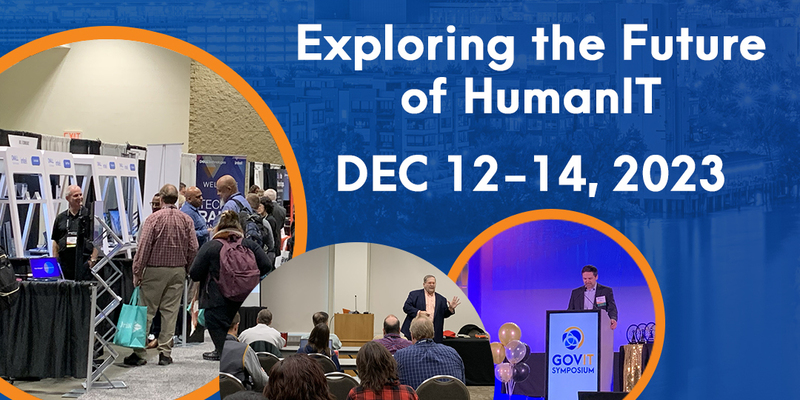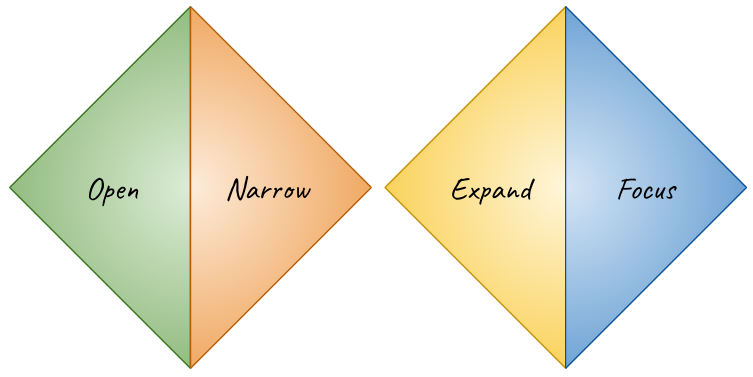 Your favorite leadership lessons from 2025
Your favorite leadership lessons from 2025
Expand your leadership skills with these 5 popular articles from this year.
 What we're reading
What we're reading Your favorite leadership lessons from 2025
Your favorite leadership lessons from 2025Expand your leadership skills with these 5 popular articles from this year.
 Thankful for our community
Thankful for our communityThank you to everyone who has shared their insights with us in 2025.
 What's your community thinking pattern?
What's your community thinking pattern?In the second part of this series, Ron explores community thinking patterns #4 and #5 and community influences.
 Share your story
Share your storyEveryone has a leadership story to tell, and we want to tell yours.
 What's new
What's new Japan’s quiet strength
Japan’s quiet strengthThings Japan is doing that other countries could learn from
 Lead, Manage, Do
Lead, Manage, DoUnpacking the deeper meaning and applying to your own or your team’s role is not always so simple.
 How teams work together
How teams work togetherGroup dynamics can be challenging for new leaders. Use these tips to bridge the gap.
 The value of fractional leadership
The value of fractional leadershipAn outside voice can provide the perspective your team needs to get ahead.
 Support our community with these print books
Support our community with these print booksOur community shares their perspectives in three new print books, available now.
 Open source licenses in the enterprise
Open source licenses in the enterpriseOpen source is everywhere, but not all licenses are the same.
 Why local governments need an AI strategy and how open data paved the way
Why local governments need an AI strategy and how open data paved the wayHow one public official blends technology, service, and strategy to shape the future of his community.
 Open Leaders Yearbook
Open Leaders YearbookTransform your leadership style with these leadership lessons
 Your favorite leadership lessons from 2025
Your favorite leadership lessons from 2025Expand your leadership skills with these 5 popular articles from this year.
 Thankful for our community
Thankful for our communityThank you to everyone who has shared their insights with us in 2025.
 What's your community thinking pattern?
What's your community thinking pattern?In the second part of this series, Ron explores community thinking patterns #4 and #5 and community influences.
 Don't let go of long-term planning
Don't let go of long-term planningWith AI, all that's changed is a specific tool, not the long-term plan or the milestones.
 Community thinking patterns and the role of the introducer-in-chief
Community thinking patterns and the role of the introducer-in-chiefAn open leader introduces two people to each other, and then steps aside and lets those two work together.
 Share your story
Share your storyEveryone has a leadership story to tell, and we want to tell yours.
 How innovative Open Organization charts work in practice
How innovative Open Organization charts work in practiceUnofficially, to get things done, horizontal communication has been going on for decades.
 Open source community
Open source communityLearn about supporting an open source community at this upcoming conference.
 Leadership in Open Organizations
Leadership in Open OrganizationsAn international leader’s reflections on open organizations, open leadership, and entrepreneurial leadership.
 Exploring innovative Open Organization charts
Exploring innovative Open Organization chartsSmall, empowered, trusted, goal-oriented teams working together will be successful.
 Applying open organization principles to save factory energy
Applying open organization principles to save factory energyHow one community turns to open organization principles to help factories save energy.
 Using a coaching moment
Using a coaching momentCoaching moments can be valuable opportunities to help someone to grow.
 Saving energy using open organization principles
Saving energy using open organization principlesMore green power generation requires making changes to demand by looking at how to reduce energy use.
 Find leadership inspiration at GOVIT
Find leadership inspiration at GOVITGet inspired by and learn from other IT leaders at this technology conference.
 Leadership lessons from working in teams
Leadership lessons from working in teamsStudents learned these important lessons about working in teams.
 Comparing solar power to traditional power generation the open way
Comparing solar power to traditional power generation the open wayOpen leaders should consider the environment. Go green to make your organization stronger.
 5 common leadership mistakes
5 common leadership mistakesAvoid these common mistakes to improve your leadership style and avoid burnout.
 How open organizations can harness changing energy generation and distribution methods
How open organizations can harness changing energy generation and distribution methodsOpen leaders need to consider environmental impacts too. Here's how to make use of new energy generation methods to lead your organization.
 Listening to feedback
Listening to feedbackBe intentional about seeking feedback.
 Applying smart thinking to open organization principles
Applying smart thinking to open organization principles Shift your thinking habits with these tips on smart thinking.
 We're in the AI hype cycle
We're in the AI hype cycleAI may be headed for a trough of disillusionment, but plan for the slope of enlightenment.
 Using habits to practice open organization principles
Using habits to practice open organization principlesHere's how to lead change in your organization by shifting habits.
 Your workplace jargon is killing morale
Your workplace jargon is killing moraleUsing workplace jargon makes others less likely to communicate effectively.
 An open conversation about open societies
An open conversation about open societiesWatch our interview with Johan Norberg, author of Open: The Story of Human Progress.
 Providing pay transparency
Providing pay transparencyBe transparent about what salary you will offer, and what benefits you provide.
 The future is collaborative commons
The future is collaborative commonsEventually, the collaborative commons sector is likely to define much of economic life in society.
 Keep the human in the loop
Keep the human in the loopAI is leading work, but keep the human in the loop
 Near zero marginal cost societies
Near zero marginal cost societiesAs the IoT becomes our working and living environment, energy costs will come closer to zero and community collaboration will be critical.
 Share your story
Share your storyWe invite you to share an article about what leadership looks like to you.
 How open organizations align with collaborative commons
How open organizations align with collaborative commonsIn his book, Jeremy Rifkin explores the rise of collaborative commons in the global economy.
 The path to an open world begins with inclusivity
The path to an open world begins with inclusivityBuilding open societies requires respect, understanding, and patience.
 Looking for experience? Join our internship
Looking for experience? Join our internshipThis is an excellent opportunity for a university student who wants to gain experience.
 Open exchange, open doors, open minds
Open exchange, open doors, open mindsCould open organization principles successfully apply to entire societies?
 Make your own Big Block of Cheese Day
Make your own Big Block of Cheese DayFind a way to build relationships and gain valuable feedback.
 Know your organization's rule makers and rule breakers
Know your organization's rule makers and rule breakersOpen leaders can achieve a great deal by sensing and responding to an organization's cultural norms.
 5 ways to present online
5 ways to present onlineToday's presentations are virtual. Make yours count.
 Understanding your team's implicit values and needs
Understanding your team's implicit values and needsTo enhance team dynamics, open leaders can study the implicit social norms that guide members' behaviors and decisions.
 Make your next presentation one to remember
Make your next presentation one to rememberUse these 4 tips to make your next presentation a great one.
 How open organization principles aided Japan's economic resurgence
How open organization principles aided Japan's economic resurgenceWhy have some organizations successfully weathered recent economic shifts in Japan while others haven't? Openness could be the key.
 The rise of the AI interviewer
The rise of the AI interviewerAI interviewers can be a red flag in the interview process.
 Lessons in openness from Japan's "business reinvention"
Lessons in openness from Japan's "business reinvention" This book explains how Japan's economic resurgence in recent decades coincided with greater transparency, collaboration, and inclusivity.
 Clarify roles with a RACI matrix
Clarify roles with a RACI matrixKeep your project on the right path by ensuring everyone understands their role.
 A more sustainable future should be a more open future
A more sustainable future should be a more open futureApplying open organization principles can help us build global governance and support to address climate and humanitarian development.
 Leadership means leading by example
Leadership means leading by exampleBy sharing information with others, you also learn and grow yourself.
 Building open organizations to make a better life more sustainable for everyone
Building open organizations to make a better life more sustainable for everyoneBy opening our approach to ensuring prosperity for all, we can advance more sustainable solutions.
 How TRIUS Inc launched a spreadsheet company
How TRIUS Inc launched a spreadsheet companyAs-Easy-As was a popular spreadsheet for DOS and Windows. Here's how it all started.
 Sustainable economic development begins with open thinking
Sustainable economic development begins with open thinkingGreater transparency could help global development practices respect planetary boundaries.
 More leadership lessons from Breaking Bad
More leadership lessons from Breaking BadYou can find leadership lessons wherever you look. Here are more great lessons from a popular TV show.
 Make the most of your next presentation
Make the most of your next presentationLearn from these great and not-so-great examples as lessons for how to give a successful presentation.
 A guide to planning the next 50 years of your career
A guide to planning the next 50 years of your careerOver the next half-century, our work environments will change. How can you plan to change with them?
 How to thrive in our changing work environments
How to thrive in our changing work environmentsIn the future, we could be working in environments full of fragmented attention and extreme isolation. Are we prepared?
 Be an authentic organization
Be an authentic organizationConsider who and what you are as an organization, and what success means for you.
 Leadership lessons from Breaking Bad
Leadership lessons from Breaking BadYou can find leadership lessons wherever you look. Here are a few great lessons from a popular TV show.
 How open principles are impacting and will continue to impact the future of work
How open principles are impacting and will continue to impact the future of workHow do we prepare for a future when the nature of work is continually changing dramatically?
 Openness is the key to innovation
Openness is the key to innovationHistory demonstrates the kinds of open organizational structures that foster innovation.
 Balancing the urgent and the important
Balancing the urgent and the importantConsider how to respond to different requests by organizing them in a matrix.
 Making the case
Making the caseLessons in writing a strategy document to make your best case.
 Open environments are where innovative ideas thrive
Open environments are where innovative ideas thriveUnderstanding innovation's true nature could help us build environments that are more conducive to innovation.
 When the best ideas win, do we recognize everyone who shaped them?
When the best ideas win, do we recognize everyone who shaped them?Rethink how we participate in meritocracies by taking a closer look at the nature of innovation.
 Choose your coaching moment carefully
Choose your coaching moment carefullyYou don't always need to recognize excellent performance when you see it. Choose your moment to keep them "in the zone."
 Be an inspiring coach
Be an inspiring coachCoaching is about helping to provide direction, not answers.
 What would a global open organization look like?
What would a global open organization look like?Solving global problems will require global collaboration. Working openly is the best way forward.
 Open organizations through the ages
Open organizations through the agesOn a global timeline, extensive collaboration is still a relatively new phenomenon. That could explain why we're still getting the hang of it.
 Leadership lessons on building relationships
Leadership lessons on building relationshipsSuccessful leaders know who they can turn to for trusted conversations, and who they can ask for favors.
 Simplify, Standardize, and Automate
Simplify, Standardize, and AutomateFocus on what IT does best, and strive to do those things in the most efficient way possible.
 Globalization: A history of openness
Globalization: A history of opennessThe history of our interconnected world is also a history of our willingness to open up.
 Nine Lies About Work
Nine Lies About WorkAn examination of common work misconceptions and how open organizations are often ahead of the curve.
 Why executives use PowerPoint
Why executives use PowerPointSometimes, a PowerPoint deck is the right tool to deliver your message.
 Speaking well
Speaking wellUse these tips to give a great presentation on a moment's notice.
 How to assess your organization's technological maturity
How to assess your organization's technological maturityImplementing new communications technologies can make your organization more open. Use this worksheet to determine your organization's technological maturity.
 A model for understanding your organization's approach to new technologies
A model for understanding your organization's approach to new technologiesAdopting new communication technologies can make your organization more open.
 How to share an update
How to share an update Sharing a few details can make a huge impact.
 Climate challenges call for open solutions
Climate challenges call for open solutionsWe can meet global energy and climate change challenges with an open mindset.
 Leadership Challenges In The New Normal
Leadership Challenges In The New NormalIt's time to reevaluate your budget priorities.
 Embracing open leadership
Embracing open leadershipLearn more about open organizations and open leadership.
 Avoiding burnout: 4 considerations for a more energetic organization
Avoiding burnout: 4 considerations for a more energetic organizationBeing open requires a certain kind of energy. If you don't take time to replenish that energy, your organization will suffer.
 Why your workplace arguments aren't as effective as you'd like
Why your workplace arguments aren't as effective as you'd likeOpen organizations rely on open conversations. These common barriers to productive argument often get in the way.
 Top 5 threats for IT leaders
Top 5 threats for IT leadersHow to navigate several common threats facing today's IT leaders.
 Don't forget to learn
Don't forget to learnUsing AI as a tool to do a thing still relies on knowing how to do the thing yourself.
 Turning destructive arguments into productive dialog
Turning destructive arguments into productive dialogIn open organizations full of frank and honest conversation, disagreements are inevitable. Make them productive.
 What is adaptive leadership?
What is adaptive leadership?When organizational challenges don't have clear and immediate solutions, open leaders need to think differently about their roles.
 2 warnings about AI in coding
2 warnings about AI in codingConsider these risks when using AI for software development.
 What is Operational Excellence?
What is Operational Excellence?Operational Excellence means providing reliable products at competitive prices, delivered with minimal difficulty.
 Your organization in 1 sentence
Your organization in 1 sentenceYour organization's purpose drives it. But can people explain what you do and why you do it in a single sentence?
 6 personality traits in your organization
6 personality traits in your organizationWhat motivates the people in your community to contribute, and who could potentially have a destructive impact?
 Why I love giving back
Why I love giving backI enjoy supporting the next generation of leaders through coaching and mentoring.
 Raise your visibility by sharing an article
Raise your visibility by sharing an article Do you want to raise your visibility in the leadership community? Write an article!
 Selflessness in open leaders
Selflessness in open leadersBalancing community interests and goals with personal ones is always challenging. How are people in your organization practicing honesty and humility?
 4 steps to build team trust
4 steps to build team trustAuthor and former FBI agent Robin Dreeke explains how leaders can cultivate trust effectively.
 Deliver your message in less time
Deliver your message in less timeA better way to give a presentation in less time is to omit content.
 Effective communication
Effective communicationAvoid communication "burnout" by recognizing these common mis-steps.
 Leadership lessons from an FBI agent
Leadership lessons from an FBI agentThis book can help you build the trustful relationships on which your open organization depends.
 Why Disaster Recovery planning isn't optional
Why Disaster Recovery planning isn't optionalReduce your risk portfolio by implementing a Disaster Recovery plan.
 Yes and
Yes andPracticing "Yes and" can be a very powerful team building exercise.
 The role of governance
The role of governanceYour governance model depends on what role IT plays in your organization.
 Five levels of performance
Five levels of performanceWhere does your organization fit on this performance model?
 Leadership lessons from 'John Wick'
Leadership lessons from 'John Wick'If you look for leadership lessons, you will find them. Here are 5 leadership lessons from 'John Wick.'
 5 rules to a 30 minute meeting
5 rules to a 30 minute meetingThe art of a good meeting is keeping everything on topic, with a productive discussion.
 Community management as a service
Community management as a serviceThe role of community manager can vary widely depending on the individual, the organization, and the desired outcomes.
 Understanding risk
Understanding riskUnderstanding risk is an important part of driving change.
 Advice for new managers
Advice for new managersGood advice for anyone starting out as a new manager.
 Leading in local government
Leading in local governmentPart of working in government is bringing people together, getting people from different viewpoints to agree.
 Recognizing our leadership community
Recognizing our leadership communityThank you to everyone who has shared their insights with us. We look forward to more in 2025!
 Can we automate open behaviors?
Can we automate open behaviors?Apps can help us build open organizations. We just need to move from principles to actions.
 Designing a system that helps the best ideas win
Designing a system that helps the best ideas winA willingness to expose and address our weaknesses must be a 360-degree attitude.
 Skills IT leaders need to have
Skills IT leaders need to haveEffective IT leaders need to cultivate these skills to lead and adapt their organizations.
 Top 5 articles about open leadership
Top 5 articles about open leadershipTransitioning from a traditional organizational structure to an open organization means changing your leadership perspectives.
 Preparing your organization for a future built on blockchain
Preparing your organization for a future built on blockchainOrganizations should seriously examine their maturity level to prepare for the future of blockchain.
 5 ways blockchain can accelerate open organizations
5 ways blockchain can accelerate open organizationsSome of the ways blockchain technology will impact organizations, helping to make them more open.
 5 top articles to elevate your leaders
5 top articles to elevate your leadersIt’s more than leading today. Inspirational leadership also looks to future leaders.
 Thankful for our community
Thankful for our communityAs we look to the Thanksgiving holiday, we are thankful for our community at Coaching Buttons.
 3 lessons in effective open partnership
3 lessons in effective open partnershipApplying open organization principles to your work can help you discover hidden marketable assets.
 Tips for finding partners open enough to work with you
Tips for finding partners open enough to work with youAn overview of bringing open organizations principles into strategic business alliance projects.
 My coaching journey from Zero to Linux Hero
My coaching journey from Zero to Linux HeroCoaching helps elevate others to new levels. Consider coaching someone near you.
 Conference recommendation for public sector IT
Conference recommendation for public sector ITMy personal experience with an engaging IT leadership conference.
 Leading startups in developing countries
Leading startups in developing countriesHow entrepreneurs can launch new startup ideas in developing countries.
 My leadership journey
My leadership journeyAs you move up a new level of leadership in your organization, your focus needs to change.
 Supporting startups in developing countries
Supporting startups in developing countriesHow organizational leaders can foster new startup projects in developing countries.
 Building startups in developing countries
Building startups in developing countriesWith the advances in information technology, startups are becoming more viable in local and worldwide markets.
 Applying an Open Decision Framework
Applying an Open Decision FrameworkUse an Open Decision Framework to help your organization make collaborative decisions.
 Leadership inspires learning and growth
Leadership inspires learning and growthEffective leaders continue to learn and practice the art of leadership.
 How collaborative will you be?
How collaborative will you be?Factors that contribute to someone's attitude toward either cooperation or competition.
 Openness is a continuum: when to compete or collaborate
Openness is a continuum: when to compete or collaborateEnabling collaboration and cooperation requires effort and hard work.
 Why it's hard to say no
Why it's hard to say noSaying Yes to too many projects can drain your energy. It's okay to say No.
 My journey from higher ed to government
My journey from higher ed to governmentColleagues have asked me how local government differed from education. Here are a few notes from when I moved from higher ed to government.
 Developing a world-class professional contact network
Developing a world-class professional contact networkYour network can be your greatest source of information and guidance.
 Career and leadership building similar to startup development
Career and leadership building similar to startup developmentWe must continually reassess our aspirations, tap into resources within our networks, and creatively generate novel new opportunities.
 Join the leadership community
Join the leadership communityWe are thankful to have an engaged community of leaders, sharing their leadership experience.
 Above the line and below the line
Above the line and below the lineThe "Above/Below The Line" model helps both sides understand the roles involved after IT consolidation.
 4 factors in open decision-making
4 factors in open decision-makingA closer look at how open organizations can engage team members in making decisions.
 5 steps to drive projects in your organization
5 steps to drive projects in your organizationHow leaders can lead through change despite team members who'd rather stall it.
 When you transition into a leadership role
When you transition into a leadership roleThese 5 steps will help you with a planful transition.
 Generative AI is following the hype cycle
Generative AI is following the hype cycleAs an industry, we are finding where expectation meets reality with generative AI.
 Putting personalities to work
Putting personalities to workLearn your personality type to make peer-to-peer discussions and decision-making more productive.
 Building trust within teams and organizations
Building trust within teams and organizationsOpen organizations depend on trust. These factors can influence it.
 5 trends that changed how we think
5 trends that changed how we thinkConsider these technologies and how they have changed IT organizations. What will the next innovation bring?
 From innovation to enterprise
From innovation to enterpriseLocal services are fine when there’s a unique need, but consider these markers to know when to transition to enterprise offerings.
 Let go of the CEO ego
Let go of the CEO egoOpen your decision-making process and give decision making power and trust to your teams.
 Leaders establishing a startup on a tight budget
Leaders establishing a startup on a tight budgetWith little money, how can leaders introduce a startup?
 Set a vision for the future
Set a vision for the futureConsider what your IT landscape will look like in five or ten years from now.
 Planning for the future
Planning for the futureIT leaders need to develop their own strategic plans to support the organization’s strategic plan.
 4 approaches to communication technology
4 approaches to communication technologyOrganizations that don't improve their communication environment may lose their competitive advantage.
 Promoting local startups
Promoting local startupsHow can an organizational leader develop, promote, establish, and build a team for community startups?
 Leadership does not happen in a vacuum
Leadership does not happen in a vacuumThanks to Simón for sharing this excellent perspective on leadership within and across organizations.
 Open source in the enterprise
Open source in the enterpriseOrganizations can deploy open source in a variety of ways.
 Empowering employee decision-making
Empowering employee decision-makingOpen leaders should stay involved in decision-making, not avoid it.
 Startup innovation leadership
Startup innovation leadershipHow local leaders can build a support network and accelerate any startup project.
 Celebrating your coaching buttons
Celebrating your coaching buttonsWe welcome anyone to share their story about how they lead.
 The benefits of fractional leadership
The benefits of fractional leadershipBring in engaged experts to help you get something going while looking for your forever person.
 Startup innovation leadership and changing supply chains
Startup innovation leadership and changing supply chainsStartups will increase in the future and leaders should see these as great opportunities.
 How does an organization leader get a project started where no organization exists?
How does an organization leader get a project started where no organization exists?With compatible values, all partners can better help each other.
 What the pandemic taught us about virtualizing our organization
What the pandemic taught us about virtualizing our organizationLessons learned in moving to a virtual organization structure in the face of the pandemic.
 Preparing for your next interview
Preparing for your next interviewGood interviewers look for a “story” behind your answer. Use this method to tell your story.
 4 reasons Zoom ‘digital twins’ are a bad idea
4 reasons Zoom ‘digital twins’ are a bad ideaWhy IT leaders should not encourage using AI to replace decision-makers in meetings.
 Why tech leaders need to mentor and coach others
Why tech leaders need to mentor and coach othersPart of giving thanks to the people who supported you in your technology career is giving back to those who are just starting theirs.
 Writing a cover letter to get noticed
Writing a cover letter to get noticedYour cover letter gets their attention. Hook their interest so they notice you.
 Preparing for a job search
Preparing for a job searchThere’s more to a resume than a list of jobs. Let your achievements stand out.
 Defensive scheduling
Defensive schedulingSometimes, you need to stop the distractions and schedule time for yourself.
 Saying and accepting thanks
Saying and accepting thanksA simple “Thank you” can be a powerful way to show your appreciation.
 Next generation leaders expect to work openly
Next generation leaders expect to work openlyLeverage the principles of open organizations to get buy-in from your teams, and drive digital transformations more effectively.
 How to nurture open leaders by letting go
How to nurture open leaders by letting goWork together with established managers and emerging leaders to build open organizations. That requires respect, curiosity, and trust from all sides.
 Open organizations where leaders can emerge
Open organizations where leaders can emergeTo foster engaged and innovative organizations, you need to set the right conditions for open leaders to thrive.
 To be an open leader, listen to your heart
To be an open leader, listen to your heartPurely rational decisions and snap judgements won't cultivate trust or empower others. Look to create open environments instead.
 Elevate open leaders by getting out of the way
Elevate open leaders by getting out of the wayYour open organization leaders know the most effective path forward, but are you giving them the space to get there?
 The corporation board of stakeholders
The corporation board of stakeholdersCompanies with stakeholder boards maximize positive society impact over maximum company profits.
 Share your leadership lessons
Share your leadership lessonsWe want to celebrate everyone who contributes to Coaching Buttons and makes this a vibrant community of writers and leaders.
 A movie to scale corporate social responsibility
A movie to scale corporate social responsibilityIf you can envision it, you can make it happen. This "movie concept" shows how organizations can be socially responsible.
 The value of corporate global responsibility
The value of corporate global responsibilityHow employees in multinational corporations can develop a sense of purpose and mission while leading their organization toward greater global social responsibility.
 Becoming a more socially responsible organization
Becoming a more socially responsible organizationHow corporations can adjust their mindset toward attacking poverty, pollution, cybercrime and other worldwide issues and do it profitably.
 Leadership lessons from open source software
Leadership lessons from open source softwareAs chief information officer, I leveraged many of the lessons I learned from my experience in open source software.
 Resource planning with work plans
Resource planning with work plansResource planning helps everyone stay on target. You can build a resource plan for your team using a spreadsheet.
 Lessons in starting a small business
Lessons in starting a small businessSharing my experience in successfully launching a small business.
 Disaster recovery and business continuity
Disaster recovery and business continuityIT manages disaster recovery, but business owners own the business continuity.
 Moving to a community servant model and Open Organization approach
Moving to a community servant model and Open Organization approachUsing an Open Organization process, companies can become more responsible and adapt to change more quickly.
 Globalization and industrial revolutions
Globalization and industrial revolutionsA brief history of globalization and how multinational corporations have to play a more sustainable, ecological and humanitarian role in the future.
 Plan your work with a Gantt Chart
Plan your work with a Gantt ChartGantt charts help project managers to plan projects and coordinate team member activities.
 Advancing leadership at the Government IT Symposium
Advancing leadership at the Government IT SymposiumHallmentum was honored to work with our peers and colleagues at the Government IT Symposium.
 Reduce noise to make better decisions
Reduce noise to make better decisionsUse this process to reduce the noise that creates radically different judgments in group collaboration.
 Fighting life's distractions
Fighting life's distractionsIn today's noisy environment, a leader has to at least reduce counterproductive "noise" and biases to achieve the desired goals.
 Welcome to the community
Welcome to the communityIf you forged a path and led the way, you are a leader. And we want to share your story.
 Planning for disaster recovery
Planning for disaster recoveryWhat does your disaster recovery plan look like? Take this opportunity to review processes and procedures in your own organization.
 Future-me needs help
Future-me needs helpUse this method to get some distance from the day-to-day issues and improve your work/life balance.
 Present and future needs with SWOT
Present and future needs with SWOTLeverage SWOT in a new way to identify present and future needs.
 Using the double diamond
Using the double diamondSometimes you need a process to break out of the everyday and find solutions. Use this approach to identify new ideas and expand on them.
 Communicating across cultures
Communicating across culturesToday's leaders need an international lens, and an ability to communicate effectively across cultures and languages.
 The future of entertainment
The future of entertainmentTechnology isn't just for digital transformation. We often see technology leveraged in entertainment.
 The changing role of the IT leader
The changing role of the IT leaderToday’s IT leader plays a much different role than the IT leader of several years ago.
 Create a dual-mode organization to explore options
Create a dual-mode organization to explore optionsInstead of trying to anticipate the future, IT leaders should instead build a flexible framework to prepare for it.
 Join us at GOVIT Symposium
Join us at GOVIT SymposiumStrengthen your teams, learn from and be inspired by others, and explore new opportunities to collaborate with your peers.
 Forming, storming, norming, and performing
Forming, storming, norming, and performingWhen bringing people together in a new team, most groups go through these four stages.
 How to lead an affinity exercise
How to lead an affinity exerciseLeadership often involves working with large groups. Use these lessons to identify the top priorities from a large gathering.
 The future of the sharing business model
The future of the sharing business modelThe sharing economy is here to stay. IT leaders developing the next generation platforms should consider sharing economy ideas as part of their model.
 Real world examples of a sharing economy
Real world examples of a sharing economyFrom Airbnb to rideshare companies, the sharing economy model is here to stay.
 Open organizations and the sharing economy
Open organizations and the sharing economyOpen organization principles such as collaboration and community also support an emerging business model based on connections.
 Leading with innovation
Leading with innovationLeaders bring innovation and strategic thinking to an organization. Explore how one CEO approaches leadership.
 Celebrating leadership with a new community
Celebrating leadership with a new communityFollow our new website, Coaching Buttons, for an open community about leadership.
 A reflection on legacy
A reflection on legacyWhen legacy systems are stable and keep running, is legacy really a bad thing?
 It's easier to interpolate than extrapolate
It's easier to interpolate than extrapolateTry this method to envision the future and fine tune your strategic plan to get there.
 The next iteration from open data is open source
The next iteration from open data is open sourceThrough open data, governments became more transparent to citizens. With open source, you can take government transparency to the next level.
 Leading change in a galaxy far, far away
Leading change in a galaxy far, far awayLeadership lessons are all around us, if we can look at things through a new lens. What lessons can you find in Star Wars?
 Leading through change
Leading through changeThe role of an IT leader often requires leading through change. Use these lessons to navigate change more effectively.
 The importance of work-life balance
The importance of work-life balanceAll work and no play makes Jack a dull boy. Use these tips to develop a healthier work-life balance.
 The four qualities of IT leaders
The four qualities of IT leadersEveryone in an organization needs to find balance between Technical, Interpersonal, Strategic, Financial. IT leaders need to choose their focus.
 Advertising on Coaching Buttons
Advertising on Coaching ButtonsCoaching Buttons does not sell advertising on the website.
 Share your story
Share your storyCoaching Buttons is an open community dedicated to advancing leadership. We believe that everyone can lead within and across organizations, regardless of their job title.
 What’s your focus
What’s your focusEffective leaders know how to balance their time. Recognize how you divide your week or day so you can focus your leadership energy.
 What are "coaching buttons"?
What are "coaching buttons"?We aim to share articles that help everyone on their leadership journey. Join us and let's lead together.